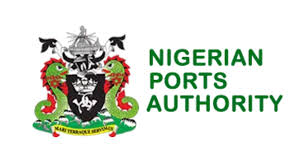 The Nigerian Ports Authority has explained that it charges operators in dollars because shipping is an international business and the dollar is the globally recognised currency.
The Nigerian Ports Authority has explained that it charges operators in dollars because shipping is an international business and the dollar is the globally recognised currency.
The acting General Manager of Corporate and Strategic Communications of NPA, Mrs Sarah Ballah, explained recently in a chat with The PUNCH.
In a bid to reduce the pressure on the naira, the Economic and Financial Crimes Commission had raised a 7,000-man special task force across its 14 zonal commands to clamp down on private organisations collecting dollars as a means of payment in the country.
The spokesperson for the anti-graft agency, Dele Oyewale, in a statement in Abuja, said the commission had summoned the proprietors of private universities and other schools charging tuition in dollars.
The naira has been in a free fall due to the scarcity of dollars in the country. The exchange rate for cargo clearance had gone up from 952/$ /$ in January to 1,447/$ on Saturday.
“First and foremost, NPA transactions are international because maritime businesses are international. And since we are dealing with an international community, some transactions have to be done based on the internationally accepted medium of exchange. The dollar is a common medium of exchange international.
“What the government said was for local business transactions. There is no way you can use naira to buy something in Europe. And some of the things that NPA does like the purchase of vessels and stuff like that are done in dollars because we are dealing with an international community,” she said.
He added that barge operators could either pay in dollar or dollar equivalent.
“However, there are some transactions that the NPA carries out like the barge operations and so on, they are charged in dollars because it is the same thing that applies, but they are allowed to pay the naira equivalent based on the existing exchange rate. So, I don’t think that directive affects all of NPA’s transactions,” she concluded.
